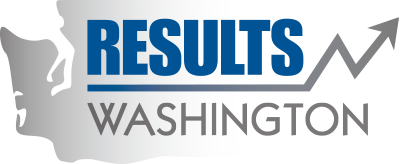Archived: Postsecondary graduates from 4-year colleges who during the 4th quarter after graduation are either enrolled in post secondary education or training or are employed in Washington
Data source: Education Research and Data Center
Postsecondary education provides a great multitude of benefits to society such as a reduced reliance on social services, lower incarceration rates, and better health outcomes. In addition, it dramatically improves the career prospects of those with a credential. This is true related to both employment rates and lifetime earnings. Public investment of higher education is therefore necessary and critical to ensuring continued opportunity for Washington residents and economic prosperity for Washington businesses.
From 2010 to 2014, the percent of public four-year graduates employed or enrolled increased from 78% to 80.2%. During that time the percent of public four-year graduates who are employed increased from 66.4% to 69.2%.In addition, the gap between the enrollment and employment success of State Need Grant recipients and non-recipients closed during that time. Significant effort is undertaken at each of the six public baccalaureates to ensure that students are aware of internships, work study employment, and other career connected learning opportunities that lead to connections with leading business and industry. Students are also encouraged to pursue their education at the graduate and professional level – at our institutions or elsewhere – to the extent that it aligns with their intended career decision.
We are laser focused on increasing student retention and graduation in our sector, both through internal efforts and as a result of dedicated state funding. This is critically important to ensure we are meeting the needs of today’s students given Washington’s rapidly changing demographics,including greater numbers of low-income and first generation students, veteran students, and students who may be returning to school or attending for the first time as an older adult. Our colleges and universities maintain industry advisory and/or alumni councils to help advise academic departments on the curriculum to ensure that it is relevant to today’s workforce. These councils also provide opportunities to relay feedback to campuses on how our students and graduates are performing in the workplace. Both undergraduate exit and alumni surveys are used to receive customer feedback.
Support the efforts of our graduates as they advance in their career and pursue additional educational credentials. Review and utilize helpful Washington resources, including the Statewide Public Four-Year Dashboard and the Education Research and Data Center’s Earnings Dashboard.
